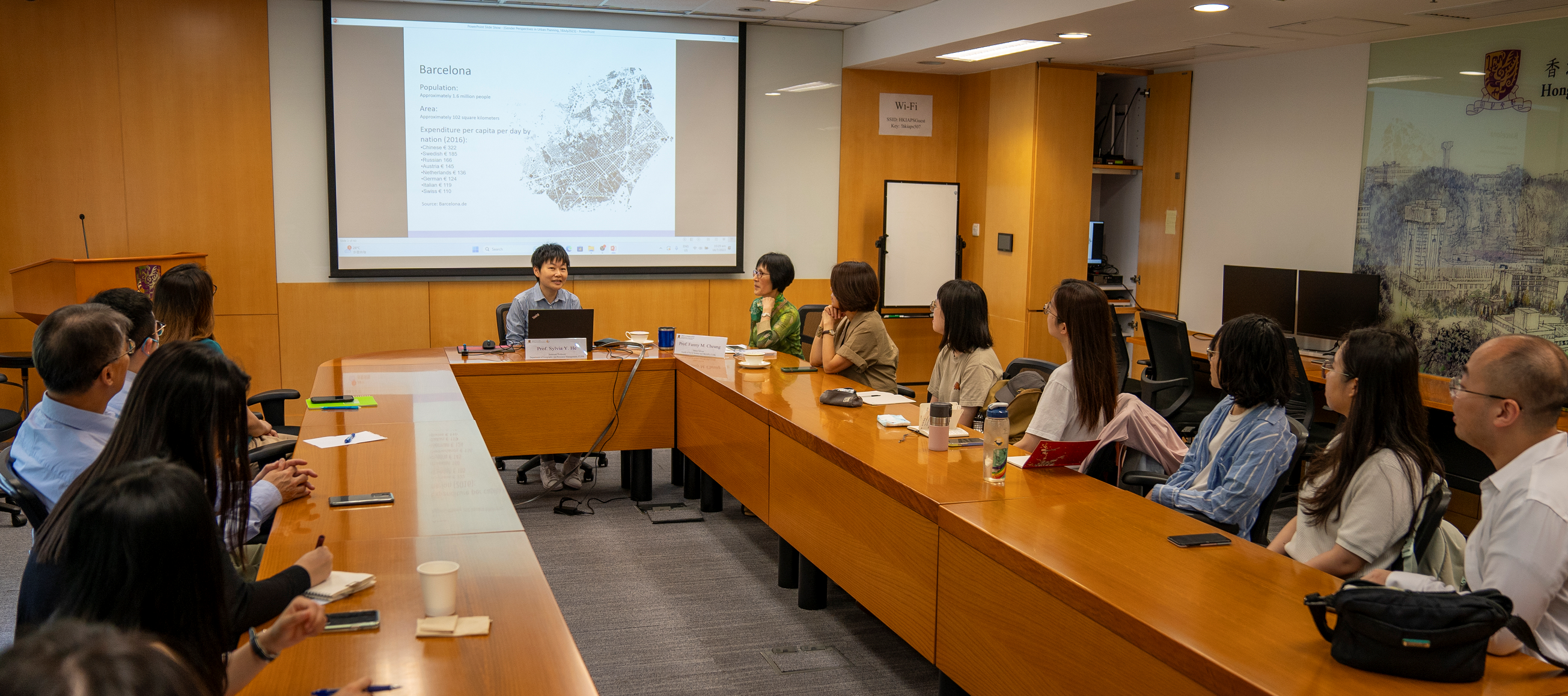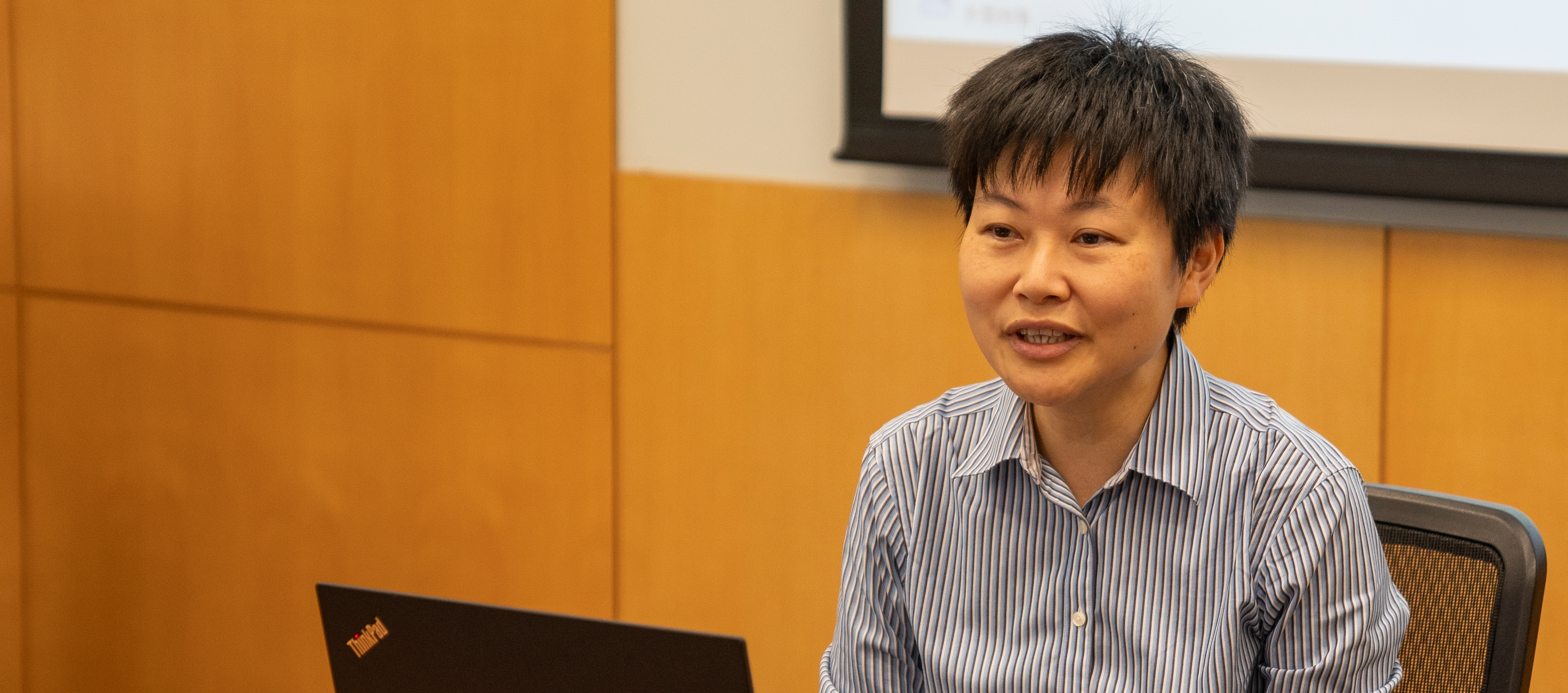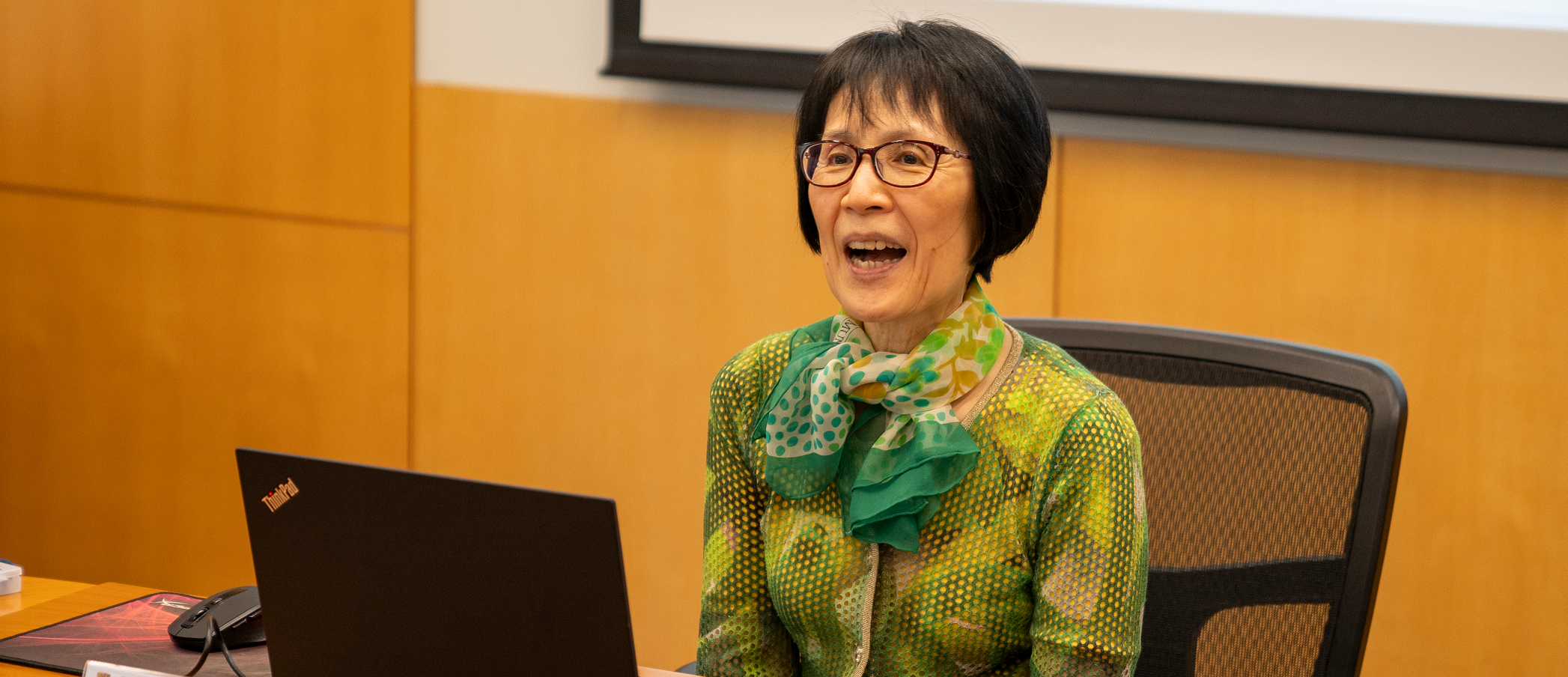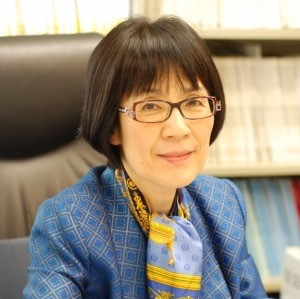
|
| Events |
|
|
|
Seminar on “Gender Perspectives in Urban Planning: The Case of Barcelona” 18 July 2023 | 10:00–11:15 (GMT+8) | Room 505, 5/F, Esther Lee Building, CUHK |
|
 Speaker SpeakerProf. Sylvia Y. He Associate Professor, Department of Geography and Resource Management, CUHK |
|
|
On 18 July 2023, a seminar on “Gender Perspectives in Urban Planning: The Case of Barcelona” was co-organized by Policy Research @ HKIAPS and the Gender Research Centre, HKIAPS. The main speaker was Prof. Sylvia Y. He and the moderator was Prof. Fanny M. Cheung.
Barcelona is one of the pioneering cities in achieving social equity in urban planning. To learn from this city’s pathways to advancing gender equity and social justice, an academic trip was undertaken by Prof. He and Prof. Cheung to Barcelona in 2023. In this seminar, Prof. He and Prof. Cheung shared their findings from the visit. In particular, they reported on the strategies to achieve equality that are being implemented by the Barcelona City Council. They first introduced Barcelona’s gender and time policies, and then the city’s Plan for Gender Justice. They also examined Barcelona’s urban policy of creating “close-knit and sustainable neighbourhoods”. The discussion was supplemented with some snapshots of gender-conscious urban designs from other parts of the world, such as Singapore, Japan, and California. At the end of the seminar, potential changes in Hong Kong’s urban planning practices and gender policies were discussed. The visit to Barcelona which took place from April 3 – 7, 2023, was supported by the Office of Academic Links at CUHK. Prof. Fanny Cheung and Prof. Sylvia He met with representatives from the Barcelona City Council, Casa Asia, the University of Barcelona, and the European Institute of Innovation and Technology (EIT) Urban Mobility to exchange experiences on the latest practices in gender studies and urban planning in Hong Kong and Barcelona. During the meeting with the Barcelona City Council and Casa Asia, Prof. Cheung first presented an overview of gender equality in Hong Kong in the past 50 years. Ms Sonia Ruiz, Director of Gender and Time Policies at the Barcelona City Council, introduced the strategies for equality pursued by the Barcelona City Council, followed by a presentation from Mr Blair Marti from the Office of Gender and Time Policies Barcelona City Council, who elaborated on “Gender perspectives on urban planning”. Mr Oriol Giol from the Office for Urban Ecology further introduced the “Superblock” urban design concept. Specifically, the gender perspectives embodied in Barcelona’s urban planning include the following four aspects: 1. Exploratory Walks 2. Industrial parks with a gender perspective 3. Gender Impact assessment on urban planning 4. Municipal facilities with a gender perspective After the meeting, the City Council arranged for a guided tour of the City Council and two gender spaces in Barcelona. In particular, the neighbourhoods designed under the Superblock project exemplify human-centric urban planning and design, achieved by significantly reducing vehicle lanes in certain neighbourhoods and by adding more urban spaces for social and leisure activities for pedestrians and residents, making the neigbourhoods safer, more walkable, and more liveable. Prof. Cheung and Prof. He met with Prof. Núria Benach and Prof. Núria Font-Casaseca in the Department of Geography at the University of Barcelona, and discussed academic gender research at CUHK and the University of Barcelona. They learned how gender research and gender movements in Europe have influenced urban planning practices in Barcelona. At the European Institute of Innovation & Technology (EIT) Headquarters, Martin Vendel, Kristy Tong, and Nishad Malik from EIT Urban Mobility introduced the EIT’s work as a bridge between academia, government, and industry aimed generating societal impacts, focusing particularly on a recent gender-focused mobility program, Inclusify. This was a project commissioned by the municipality and piloted in Barcelona to test out a tool for engaging female commuters (and getting feedback from them) to create safe and inclusive public transportation. The deliverable is an online engagement platform that allows commuters to point out safety issues and concerns relating to public transport servicing in the Barcelona Metropolitan Area (AMB). About 15 local participants attended the seminar in person. ■ |
|




